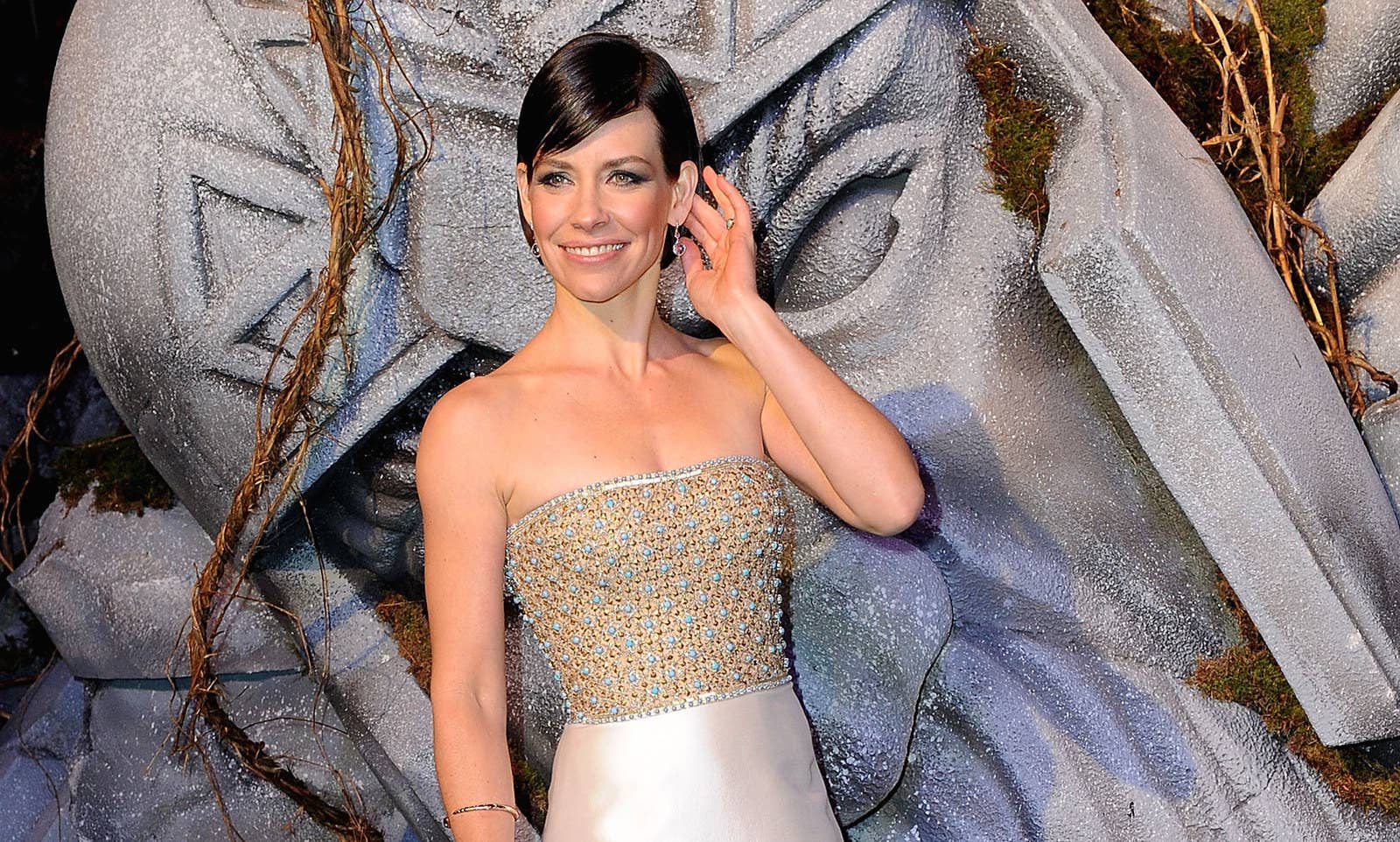
LOS ANGELES — "I really hated working as an actress."
This sharp confession casually spills out of Evangeline Lilly within the first two minutes of conversation with her. Seated in the corner of a sunny hotel cafe in Hollywood in late November, Lilly is at the tail end of a promotional tour for The Squickerwonkers, her first children's book in what Lilly dearly hopes will be a long and satisfying writing career. Storytelling seems to be her forte, actually, because all it takes is a question about her book's dedication — in which she thanks her mother for praising The Squickerwonkers when she first wrote it as a poem at 14 — for Lilly to launch into a lengthy narrative about realizing while working on the sensationally popular TV series Lost that she would be perfectly happy if she never acted again.
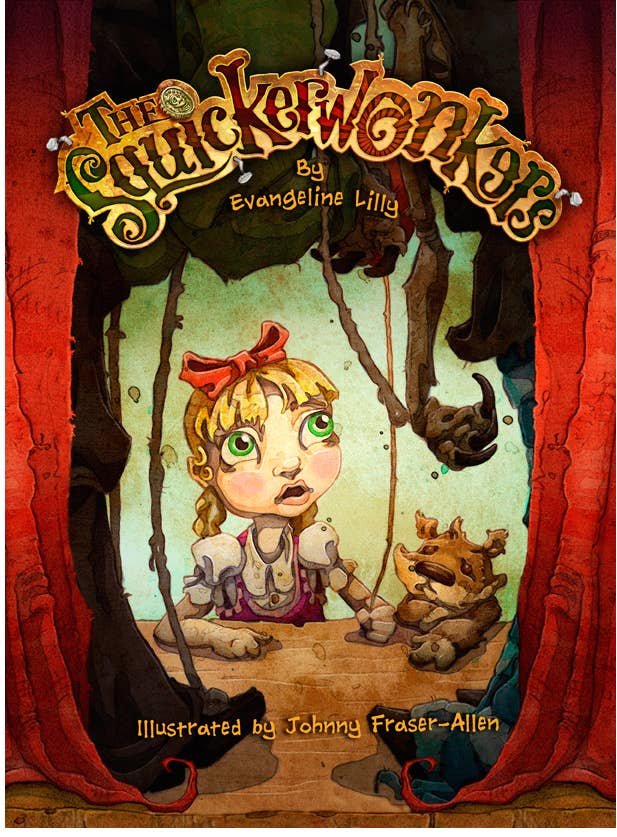
"My mom told me she thought I should publish [the story]," Lilly tells BuzzFeed News as she begins to tuck into a cup of tea. "But I was 14, and I didn't know how to publish a book. I also knew that my mom thought that everything I did was pretty great, and that didn't mean the rest of the world was going to think it was pretty great. But I think that encouraged me enough that I held onto the poem. That was before the days of computers and hard drives — at least, we didn't have any. And so it was on paper, and I carried it around with me for years. And then I wound up finally deciding that I wanted to make a go of a career as a writer, which came about some time in the middle of filming Lost. I figured out I really hated working as an actress, and I was like, Well, then, what do I want to do if I don't want to be an actress? Because I didn't really mean to become an actress. I was sort of an accidental actress."
While Lilly's acting career may have been unintentional, it has also never been hotter. On Dec. 17, she will star as warrior elf Tauriel in The Hobbit: The Battle of the Five Armies, the culmination of director Peter Jackson's epic Middle Earth cinematic sextet. And next summer, she'll appear as Hope Van Dyne, the female lead in Marvel Studios' latest potential new franchise blockbuster, Ant-Man. Other Lost alumni have certainly found major success on television, but none of the show's original cast has come anywhere close to landing major roles in two global franchises. Yet in both cases, Lilly, 35, came precariously close to walking away and pursuing instead what she calls "this quiet life of writing." Ironically, it turns out Lilly's love for writing and storytelling is also what has kept her acting career alive.
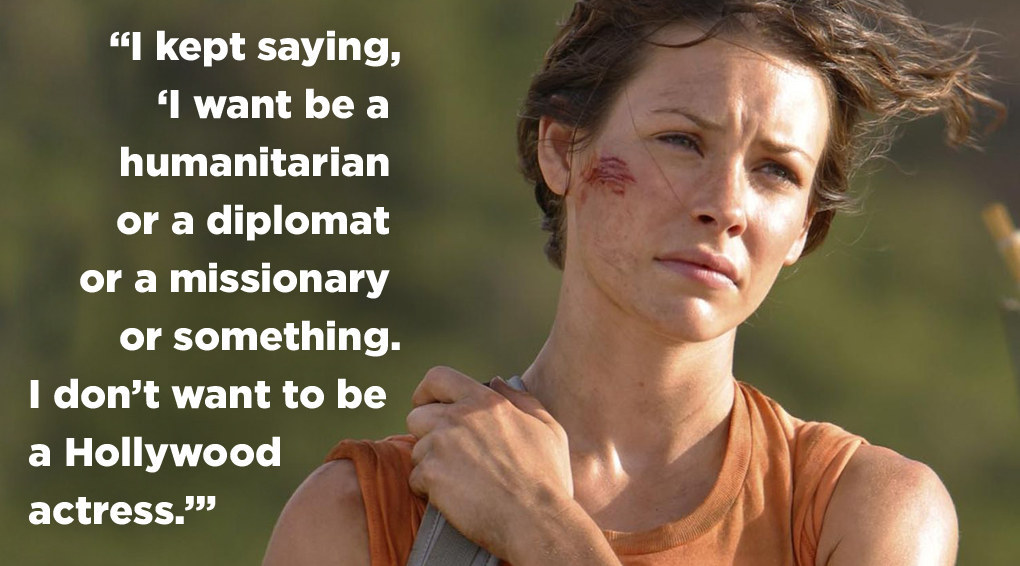
Lilly's first published story appeared in the newsletter for her school in a suburb of Vancouver, British Columbia, when she was 8. "I've always kept a journal," she says, taking a sip of her tea. "I've always written stories or poems. I can't not write." By high school, in fact, there was very little Lilly couldn't do. She made captain of her soccer team, and was vice president of the student council. She was a camp counselor and taught Sunday school. She took honors classes and had a 4.3 GPA. "I was a bit of an overachiever," she says. "I was good at drama and at art and the sciences and English. And I just discovered that there was a lot of people who hated my guts."
Lilly can laugh about this now — and she does, quite often — but it is plain that she had to confront the kind of depressing life choices faced by many other ambitious young women. "Around the time I graduated from high school, I decided better to underachieve and have friendship than to overachieve and be alone," she says, speaking deliberately, as if reciting a mantra she had not spoken aloud in years. "And so I intentionally pulled back, and went out of my way to try to learn how to be a wallflower. Which was very unnatural for me. I lived for about five years trying everything I could to not stand out. … Just be normal, just be medium. Be average."
"Writers expend a lot of intellectual energy, but not so much emotional energy. And I have intellectual energy coming out of my yin-yang, but emotional energy — I am so lazy."
Throughout this time, while Lilly was studying international relations and political science at the University of British Columbia, she was also constantly writing, banking what has become a sizable trove of everything from poems for children's storybooks to a screenplay for a sweeping sci-fi adventure. And to help pay the bills, she found a local agent in Canada to help her book the occasional commercial. "That agent kept bugging me go out for proper auditions — you know, pursue an acting career," she says. "And I kept saying, 'Not interested, not my thing. … I want be a humanitarian or a diplomat or a missionary or something. I don't want to be a Hollywood actress.'"
One day in late 2003, however, Lilly says a friend confronted her about her hesitation surrounding acting. "This good friend said to me … 'I think you're afraid of your own greatness.' Something inside of me erupted, and I burst into tears," she says. "I cried for a good hour, uncontrollably sobbing. It was like the cork that I had put in myself got popped. So as an exercise of self-realization — as a way of saying, 'I'm just going to shine my light, be who I am, be crazy and put myself out there' — I allowed my agent to send me out on some auditions for pilot season in 2004."
Her first audition was in January. By March, she was in Hawaii, shooting the pilot episode of ABC’s plane crash drama Lost.
"I wasn't expecting jobs out of it!" Lilly says, still incredulous about her own great good fortune. "I was so ignorant. When I got a call from my agent saying, 'Oh my god, they want to fly you to L.A. to test for the network and the studio,' and I said, 'What the hell does that mean? You just spoke Latin to me.' I didn't even know what a test was. I didn't know what a callback was. I didn't know what any of this stuff was because I wasn't pursuing the job. I had no idea what I was getting myself into."
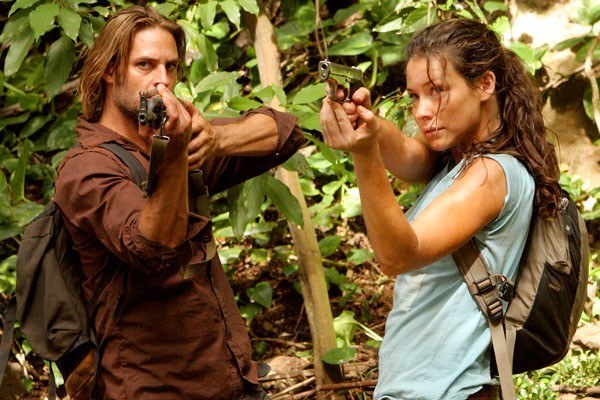
J.J. Abrams — who co-created Lost and directed the pilot — even pulled Lilly aside to impress upon her just how radically her life could become outside of her control once she signed her contract for the series commitment. "I remember at the time thinking, 'I have no idea if I want to do this,'" she says. "'I just know it's a one-in-a-million chance, and it happened. There's got to be some higher power at work that's opening this door for me for a reason, and I don't know what that is, but, fuck it, I'm just going to go for it.'"
Abrams' predictions proved more prescient than anyone could have guessed. Lost is one of the last network TV shows to launch from the very first episode as an all-consuming cultural phenomenon. The show quickly engendered a massive, cultish following, fueled by the internet, that dissected every last nuance of the show — and seemed to especially relish in nitpicking Lilly's character, Kate Austen, as well as Lilly's performance. "We were under a microscope," says Lilly with a sigh — and that was just on the show. It was headline news when her home in Hawaii burned to the ground, and her romantic life also fell under the long-lens sights of the paparazzi.
So by the time Lost came to a close in 2010, Lilly had long since resolved to shut down her acting career and turn back to her lifelong passion for writing. "There are so many reasons why, for me, writing is superior to acting," she says. "One of them is anonymity. Writers can live relatively normal lives. Most [working] actors can't. Writers can work from home and be near their family most of the time. Actors usually can't. Writers expend a lot of intellectual energy, but not so much emotional energy. And I have intellectual energy coming out of my yin-yang, but emotional energy — I am so lazy. I just don't have a lot of emotional energy to give. I don't like drama in my life, and I don't like having to pretend [to have drama]."
So after shooting a supporting role in the Hugh Jackman sci-fi family drama Real Steel immediately following the finale of Lost, Lilly walked away from acting, she thought, for good.
That is, until she got a phone call from Peter Jackson.
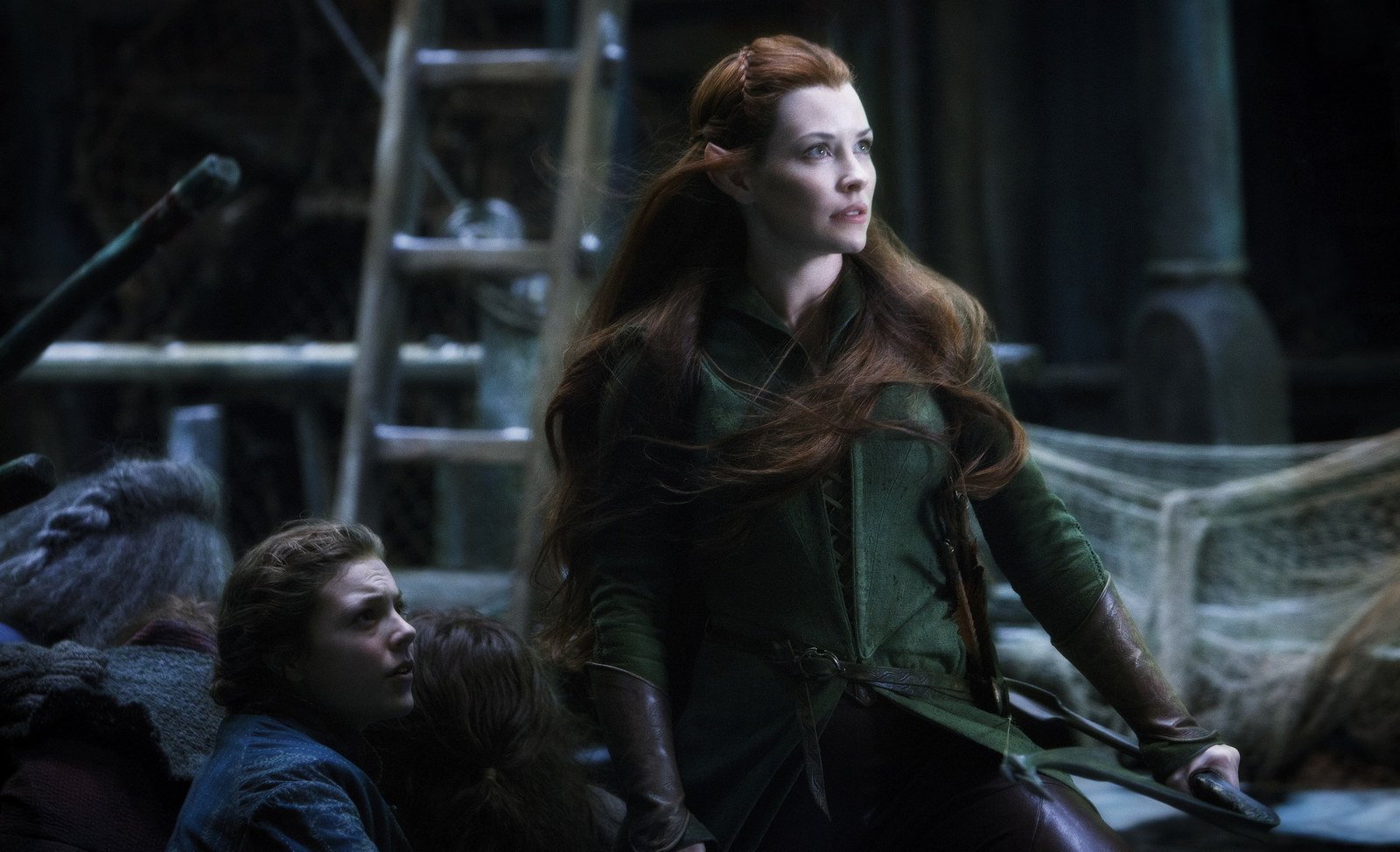
"I thought I was done," Lilly says, lightly rapping the table. "I never thought I'd act again after Real Steel. And then Peter Jackson asked me if I wanted to play an elf in The Hobbit, which was my favorite book as a 13-year-old. I used to fantasize as a little girl about being an elf." This wasn't just any elf, either. Tauriel was created by Jackson and his screenwriting collaborators Fran Walsh, Philippa Boyens, and Guillermo del Toro specifically to give The Hobbit the strong, independent female character that was lacking in J.R.R. Tolkien's original novel. Lilly could fulfill her childhood fantasy, born from the pages of a beloved book, with a character that would be all her own. It was as if Jackson had conceived of the ideal pitch to rekindle Lilly's interest in acting again.
"I just thought, 'OK, well, either take it, and accept that you'll probably always be lured back and find a way to come to terms with it, or say no and really just walk away, and make it real,'" says Lilly. She shrugs sheepishly. "So, obviously, I did the former."
In one of life's too-perfect twists of fate, returning to acting on The Hobbit also provided Lilly with a prime opportunity to jump-start her writing career. Across the board, the feedback she'd been receiving was that her strength as a writer was in genre-based "world creation" — "the stuff that I write that's within this world … it's too boring, like everyday life," she says with a laugh. With that notion ringing in her head, Lilly felt the first logical step into becoming a published author was an illustrated children's storybook. And Jackson just happened to own a company, Weta Workshop, filled with visual artists — one of whom, Johnny Fraser-Allen, was keen to collaborate with her.
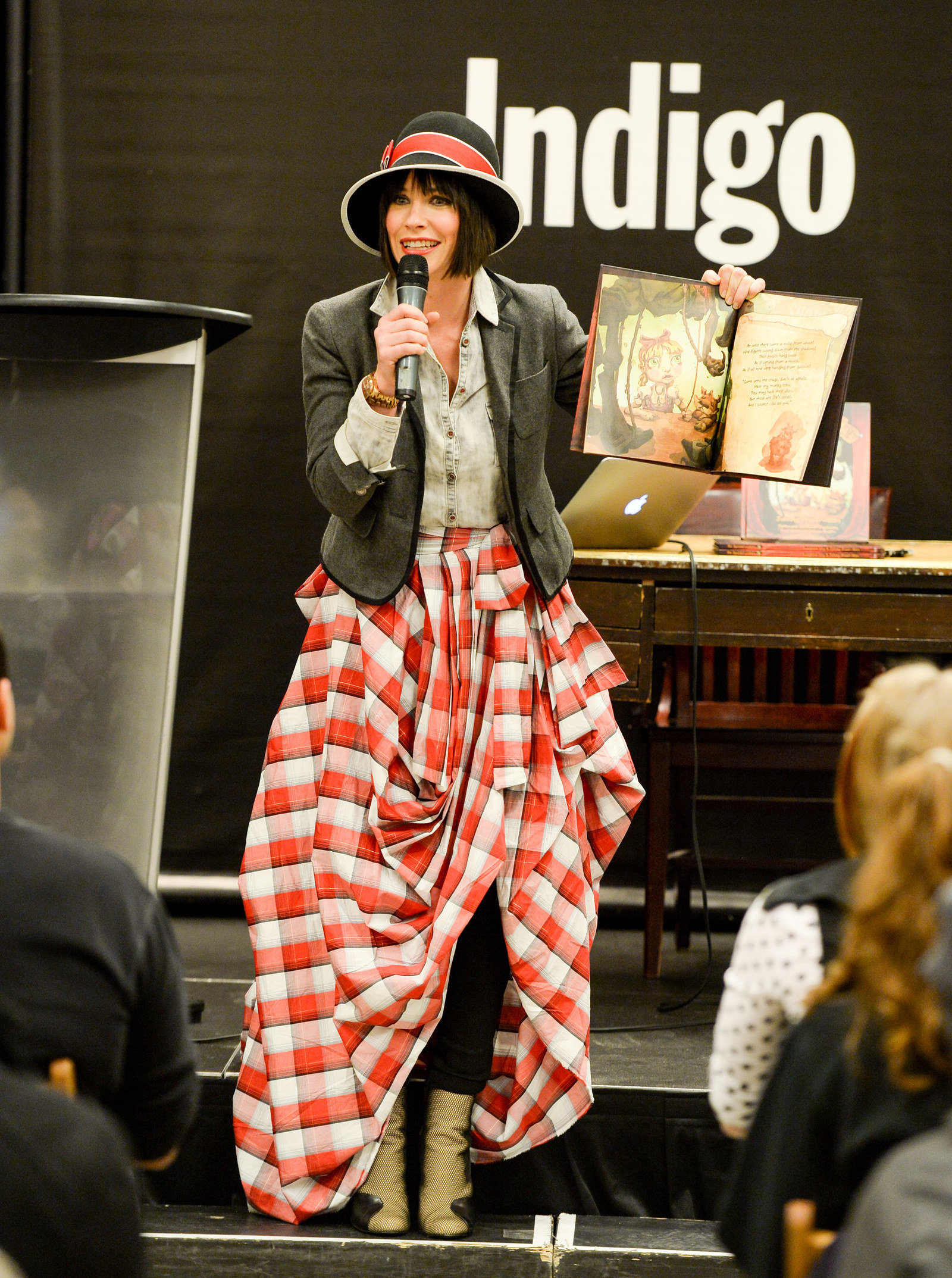
Lilly showed Fraser-Allen three of her stories that could work as an illustrated children's book, and they eventually settled on The Squickerwonkers, a macabre tale about a troupe of uncanny misfits who come upon a young wealthy girl and (SPOILER alert for a children's storybook!) end up inheriting her fortune and becoming lords of the land. "[Johnny] showed me this watercolor painting with these marionette puppets," she says with a wide grin. "They were on a stage, and he told me, 'It's like a wooden stage in a traveling wagon.' … And I was like, Holy shit — he completed my world. It was what you hope and imagine will happen when you find your spouse."
Lilly and Fraser-Allen's creative partnership ultimately resulted in a two-book deal for The Squickerwonkers — Jackson, Walsh, and Boyens even wrote the first book's foreword. Lilly was, at long last, officially a professional writer.
And then director Edgar Wright (Scott Pilgrim vs. the World, Shaun of the Dead) offered her the female lead in Marvel Studios' Ant-Man.
"Initially, I was like, no way. No way." Lilly starts laughing. "And then they said, 'Paul Rudd's playing the lead.' And I was like, 'Oh shit. I love Paul Rudd. I really want to work with him!' So I was like, 'OK, well, send me the script. I'll read it and I'll consider it.' And then I started watching Marvel [Studios] movies, which I hadn't done before. … I'm a bit of a snob when it comes to movies — like, the popcorn-munching movies, I never go see them. I was pleasantly surprised." Lilly especially admired how carefully Marvel Studios had built an integrated cinematic world out of seemingly disparate superhero stories. "I thought, these are actually incredible — they're making fantastic films."
Lilly also pored over as much of the Ant-Man comic book lore as she could find before agreeing to the film. She learned that the original titular hero was inventor Hank Pym (Michael Douglas), who was married to Janet Van Dyne — also known as fan favorite superhero Wasp. She learned that the Ant-Man suit was later passed down to Scott Lang (Paul Rudd), and that her prospective character — Hope Van Dyne — was Janet and Hank's daughter. And she learned that fans take all of this very seriously. "I thought Edgar's idea to blend the [Hank and Scott] stories was brilliant," she says. "You're going to have fans up there who insist that you tell the story of Hank Pym, and fans up there who will be more on the Scott Lang side of it. … I think we are going to come close to pleasing them all. And what's cool is that, you know, Janet Van Dyne is my mom. Hank Pym is my father. I was raised by two superheroes. I'm no schlump. I'm a pretty smart, competent, capable, kick-ass female. She's very cool."
And then last May, Wright abruptly left Ant-Man, mere weeks before the film was due to start production. In a joint statement, the filmmaker and Marvel Studios cited "differences in their vision of the film," but Lilly was not satisfied with that explanation.
"I thought, Well, if Marvel are big bullies, and they just want a puppet and not someone with a vision, I'm not interested in being in this movie."
"[I was] shocked," she says. "And mortified, at first. Actually, I wouldn't say mortified. You know, a creative project is a moving target. You never end up where you start. But we all, I think, signed on very enthusiastically with Edgar. We were excited to work with Edgar. We were fans of Edgar. So when the split happened, I was in the fortunate position where I had not signed my contract yet. So I had the choice to walk away, and I almost did. Because I thought, Well, if it's because Marvel are big bullies, and they just want a puppet and not someone with a vision, I'm not interested in being in this movie. Which is what I was afraid of."
So she waited, and politely insisted that she would not sign her contract until she could read the new script that she understood was the crux of the divide between Wright and Marvel Studios. "I finally got the script literally the day before I was supposed to go in for fittings," she said. "I said, 'I'm not going to do my fitting until I see the script.'"
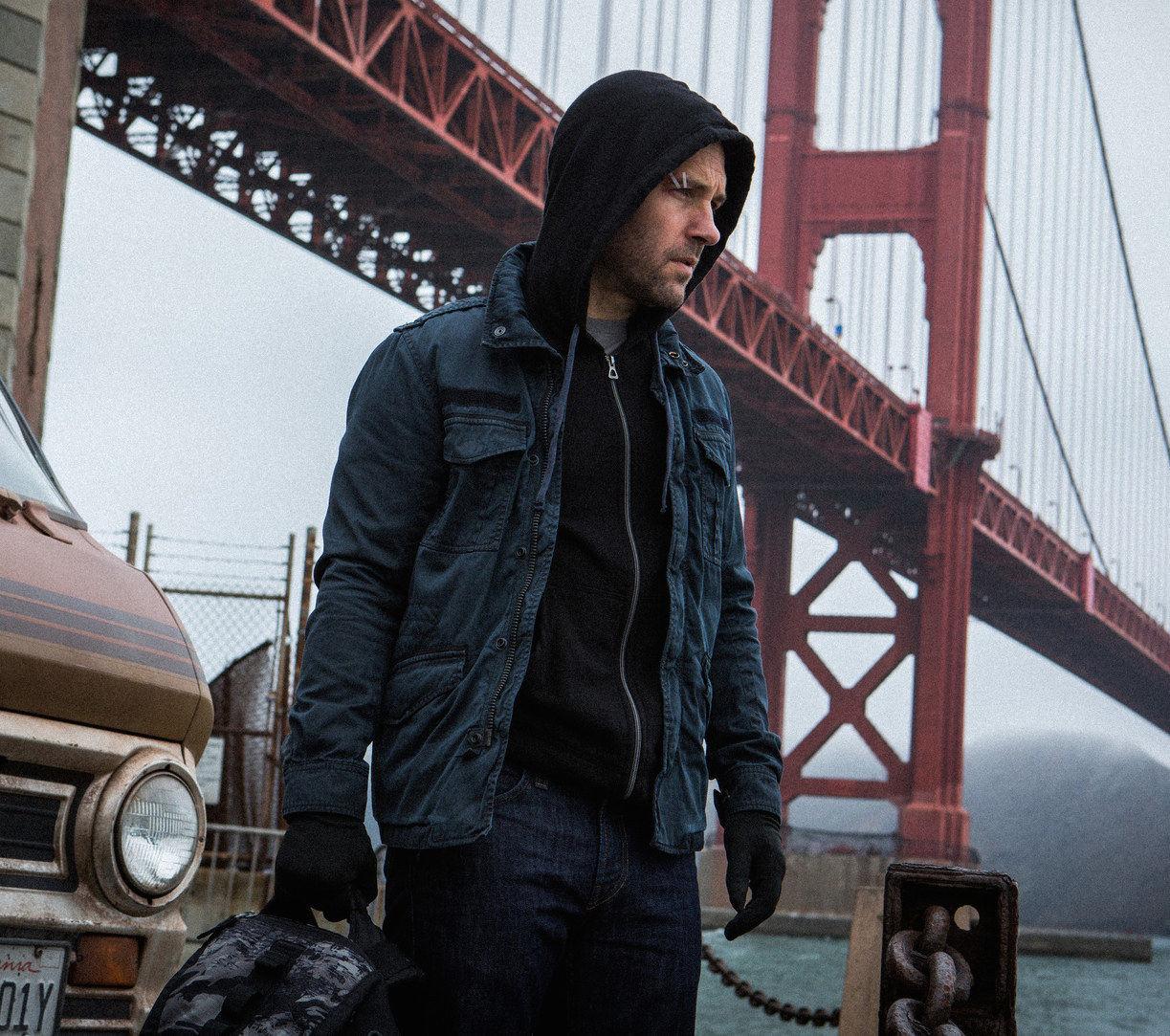
Once she finally could read the new Ant-Man script, Lilly found her own writer’s affinity for world creation informing her appreciation for why Marvel and Wright had to part ways. "I saw with my own eyes that Marvel had just pulled the script into their world," she says. "I mean, they've established a universe, and everyone has come to expect a certain aesthetic [and] a certain feel for Marvel films. And what Edgar was creating was much more in the Edgar Wright camp of films. They were very different. And I feel like, if [Marvel] had created Edgar's incredible vision — which would have been, like, classic comic book — it would have been such a riot to film [and] it would have been so much fun to watch. [But] it wouldn't have fit in the Marvel Universe. It would have stuck out like a sore thumb, no matter how good it was. It just would have taken you away from this cohesive universe they're trying to create. And therefore it ruins the suspended disbelief that they've built."
After a successful meeting with Wright's replacement, Peyton Reed (Bring It On, Down With Love), Lilly says, "I signed on and I never looked back."
As for Lilly's future, she has no other acting gigs on her immediate horizon, which is fine with her. "I call it my day job," she says of acting. "You know, it pays the bills. It's a great job. I'm grateful for it. But it's not my passion."
Instead, as a dyed-in-the-wool overachiever, Lilly will start work on adapting a female-driven sci-fi/fantasy story she originally wrote as a screenplay into a novel and a complementary graphic novel, all while working with Fraser-Allen on illustrating the second Squickerwonkers book. She hopes to turn them into a series. "If it's successful, then hopefully I'm lucky enough to create the rest," she says, sitting back in her chair, speaking almost as if she's trying to convince herself of something. "If it's not successful, if people don't like it, and it doesn't sell, then I'm going focus on other projects. It was such a labor of love to get it published in the first place. This has been three years in the making. I would have to finally tell myself, OK, you've fought long and hard for this, and you've got to let it go." She bursts into laughter. "You put it out there, people didn't like it, let it go."
